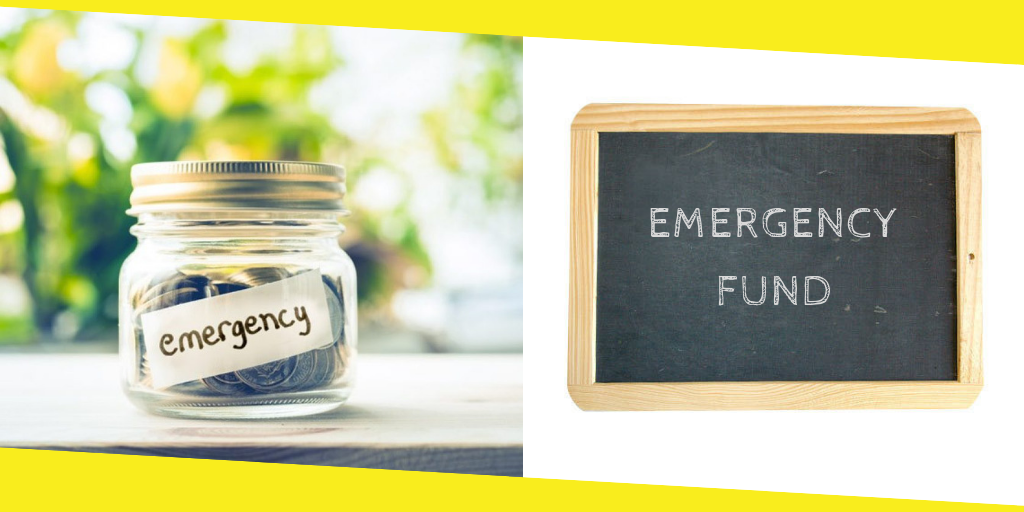It’s All About Emergency Fund

While we reach 30s, our prime motto is to secure the future financially and managing current expenses without making compromises on the savings plan. We strive hard to ensure that our financial planning fulfils every goal we set for our future like buying a house or car, funding higher education of children, spending on vacations, attending medical expenses, etc.
But securing future finances and be prepared for emergencies forms an integral part of efficient financial planning. This is where you need to understand the importance of emergency fund.
An emergency fund refers to a separate account created to aid in case of financial crisis that may arise in the event of personal financial dilemma such as critical illness, loss of job, unexpected home repairs, major car damage or unplanned expensive travel expenses. The main purpose of creating this fund is to enhance financial security by creating a safety cocoon of funds that can cater to such emergency expenditure without compelling an individual to incur debt at high interest rates.
Here are vital facts about emergency fund that will back your financial management with accurate insights:
-
Contents
ToggleMinimum Amount Must Be Set For Formation Of An Emergency Fund
Financial experts suggest that an emergency fund must have money equivalent to three months of income. Since financial institutions do not have the provision for setting up an emergency fund under your name, it is you who has to strictly set up and maintain this account and reserve this fund for personal emergency crisis.
Moreover, the amount must be decided considering situation factors such as unmarried people may reserve a lower amount in comparison to married couples or couples with children and parents at home.
-
Always Keep Emergency Fund Liquid
Since you have to design your emergency fund based on the unexpected financial shortfalls you may face, you need to keep the emergency fund liquid. You must analyse and determine to find the best place to keep your emergency fund parked.
You must be easily accessible to the money whenever any contingency pops up. At the same time, care must be taken that you don’t get penalised in the form of pre-withdrawal penalty charges or exit load. As a matter of fact, your fixed deposits or mutual fund investments won’t be regarded as emergency fund as they are not always liquid. You won’t be able to withdraw this money any time during an emergency.
-
Emergency Fund Is Built Gradually
The importance of emergency fund is boosting significantly. However, building an emergency fund overnight is not feasible and it must be done gradually, keeping in mind numerous factors that affect the fund’s formation. First of all, be willing to set aside a stipulated amount each month in a separate bank account.
For example, if you decide to build an emergency fund of Rs. 1 lakh, then you must decide to either put Rs. 5000 or Rs. 10000 each month in a separate account. Then, wait for the amount to reach the budget for the emergency fund. Gradual yet regular deposits in this account will not only help you have a dedicate account to cater to your financial emergencies but will also not affect your monthly disposable income to a great extent.
-
Divide Your Emergency Fund For Short Term & Long Term
While you have determined the minimum amount that must be accumulated in your emergency fund account, next you need to segregate them into two important categories –
* Long Term Emergency Fund – This account must be funded for the purposes that would require huge amount of funds such as sudden medical emergency or major natural disaster.
* Short Term Emergency Fund – This is the account from where you can withdraw in case of sudden emergencies. Such type of account may have limited funds but allows you easy access to it and can provide instant relief from crisis giving you some buffer time to extract funds from your long term emergency fund.
Recommended: 5 Benefits of Long Term Investments For Financially Sound Future
-
Investing Your Emergency Fund
Upon accumulation of the total amount for emergency fund, you must not leave it entirely in the form of cash or in your regular bank account. Even though the emergency fund is supposed to be liquid, but it is certainly not something that must be accessed often. This is why, you can consider investing it in a manner that least affects its liquidity and offers decent returns.
One of the best ways to invest emergency fund is by investing them in short term RDs and debt mutual funds. The debt mutual funds like liquid mutual fund invest in debt instruments containing maturity period of less than 91 days. Without being volatile, they earn decent returns and are high quality papers which are least impacted by interest rates.
-
Redeeming Your Emergency Fund
The increasing importance of emergency fund is credited due to the fact that it not only provides financial care during emergencies but also offers great returns on investment. Keeping the liquidity factor in mind, it has been found that most liquid funds carry instant redemption of about 90 percent of amount invested or up to Rs. 50000.
The redemption can be made anytime online and the money will instantly get credited to the bank account linked. You need to ensure that the fund house you invest in offers this kind of instant redemption facility.
You may like this
Recommended For You
Beginner’s Guide: Learn How to Become a Successful Bitcoin Trader!
Snehashree Bhat
A young writer who loves to pen words from creative perspective. Passionate internet surfer, a versatile homemaker and a person who finds pleasure in adopting healthier and positive changes in her persona. An enthusiastic feminist who wishes to make serious changes in the stereotypical thought process of the society via the voice of her words.




